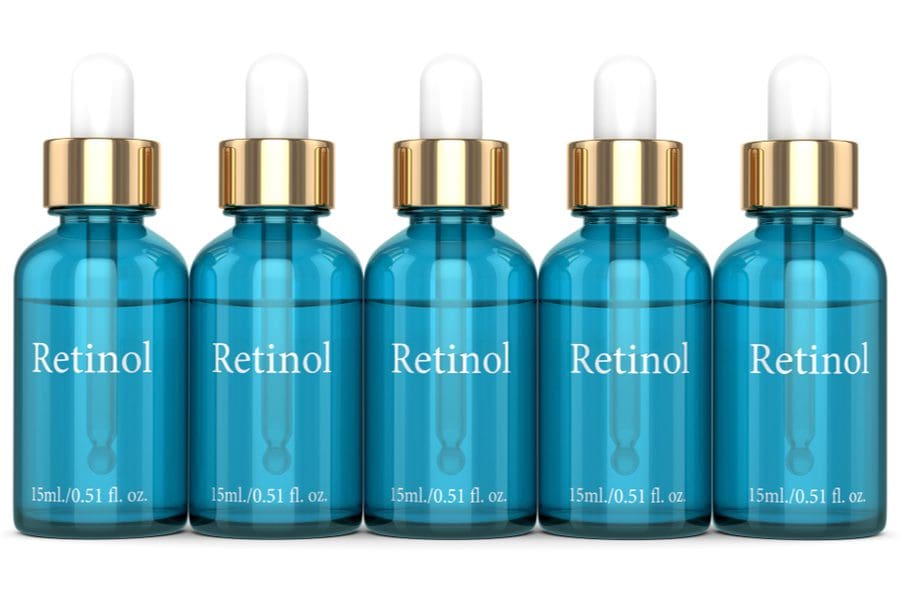While retinoids are some of the most powerful skincare ingredients out there, they’ve recently come under scrutiny. Many manufacturers are uncertain if their retinoids are sustainably sourced—or even safe.
There is mounting concern that many retinol products contain a harmful chemical called butylated hydroxytoluene (BHT). Does that mean that you should stop using retinol? Just how bad is BHT for you, really? Here’s what the experts have to say about BHT, retinol, and safer alternatives.
What is Retinol?
Retinol is an over-the-counter derivative of vitamin A found in many skincare products, from moisturizers to serums. It’s well-known for its anti-aging and blemish-busting effects. Products containing retinol are popular with dermatologists and have plenty of research to back up their use.
Retinoids are also derived from vitamin A, but they are not available over-the-counter, except for Differin (adapalene gel). This topical retinoid used to be prescription-only but recently became available at pharmacies and drugstores.
Whether you’re using retinol or retinoids, you should know how they could potentially impact your skin. The most common side effect of retinol and/or retinoid use is sun sensitivity. If you’re going to use these products, always wear sunscreen—inside your home, and even if it’s cloudy outside.
How Bad is BHT?
BHT is a synthetic antioxidant found as a stabilizer in many retinol-containing skincare products. So, what’s the harm in that?
There is mixed evidence indicating BHT might have carcinogenic effects. The Environmental Working Group (EWG) warns that BHT promoted tumor growth in several studies. In the European Union, the ingredient is linked to liver cancer in animals. BHT is known to cause severe skin reactions in some people. In others, it is an endocrine disruptor, meaning it can lead to hormone imbalance.
Overall, the EWG gives BHT a rating of 3 or “fair,” indicating that it is most likely safe—though there are some documented risks to using BHT-containing products on your skin.
Clean Retinol Alternatives
While there is limited evidence to support the risks of BHT in retinol-containing products, we prefer to avoid exposure to toxic chemicals whenever possible. Fortunately, many alternatives don’t carry the same risks. Those alternatives include clean retinol products that are guaranteed BHT-free, and the plant-based retinol alternative bakuchiol.
First Aid Beauty Skin Lab Retinol Serum ($58, click here)
First Aid Beauty’s retinol-based serum belongs to the Clean at Sephora line. All products in this line are guaranteed not to contain more than 0.1% BHT in their total formula.
Herbivore Botanicals Bakuchiol Serum ($54, click here)
Formulated with the plant-based alternative bakuchiol, Herbivore Botanicals’ serum is gentle enough for sensitive skin. The bakuchiol found in this product is sourced from the Ayurvedic Babchi plant for added benefits.
Biossance Squalane + Phyto-Retinol Serum ($72, click here)
This serum combines anti-aging bakuchiol with squalane (a plant-based oil derived from ingredients like olives and rice bran) for extra moisture.






